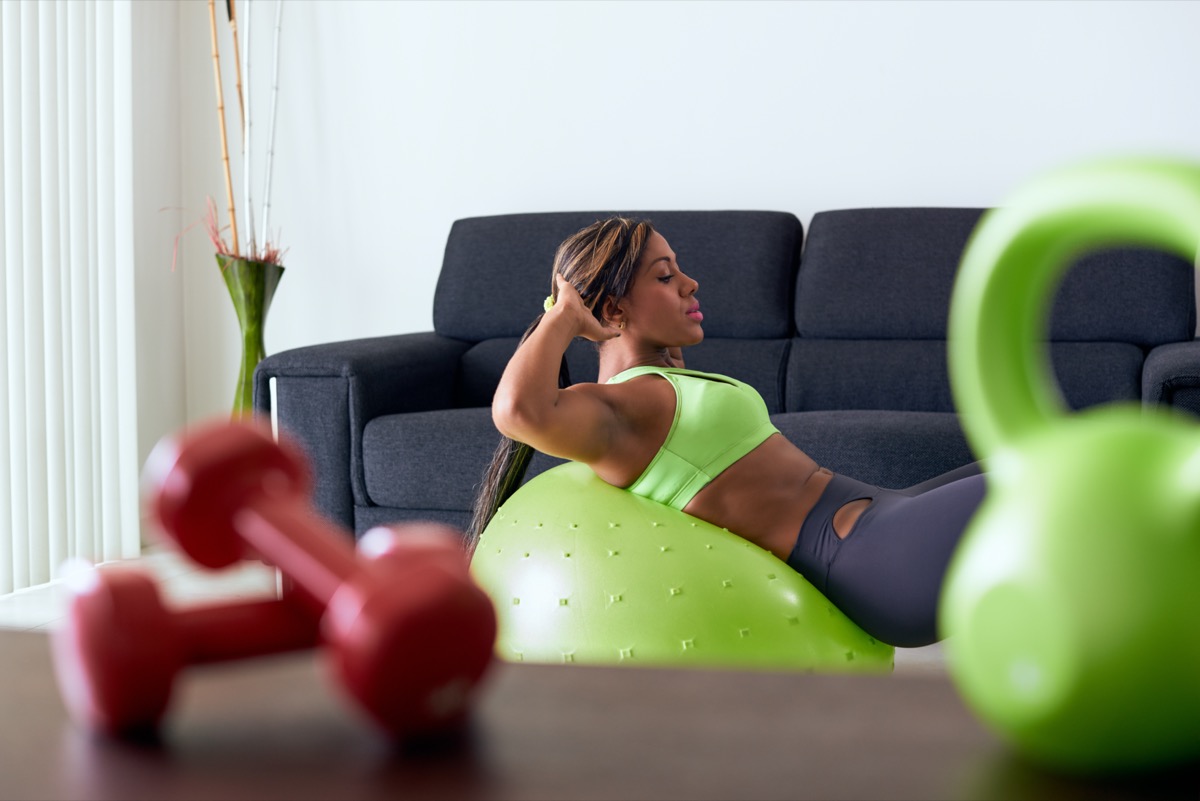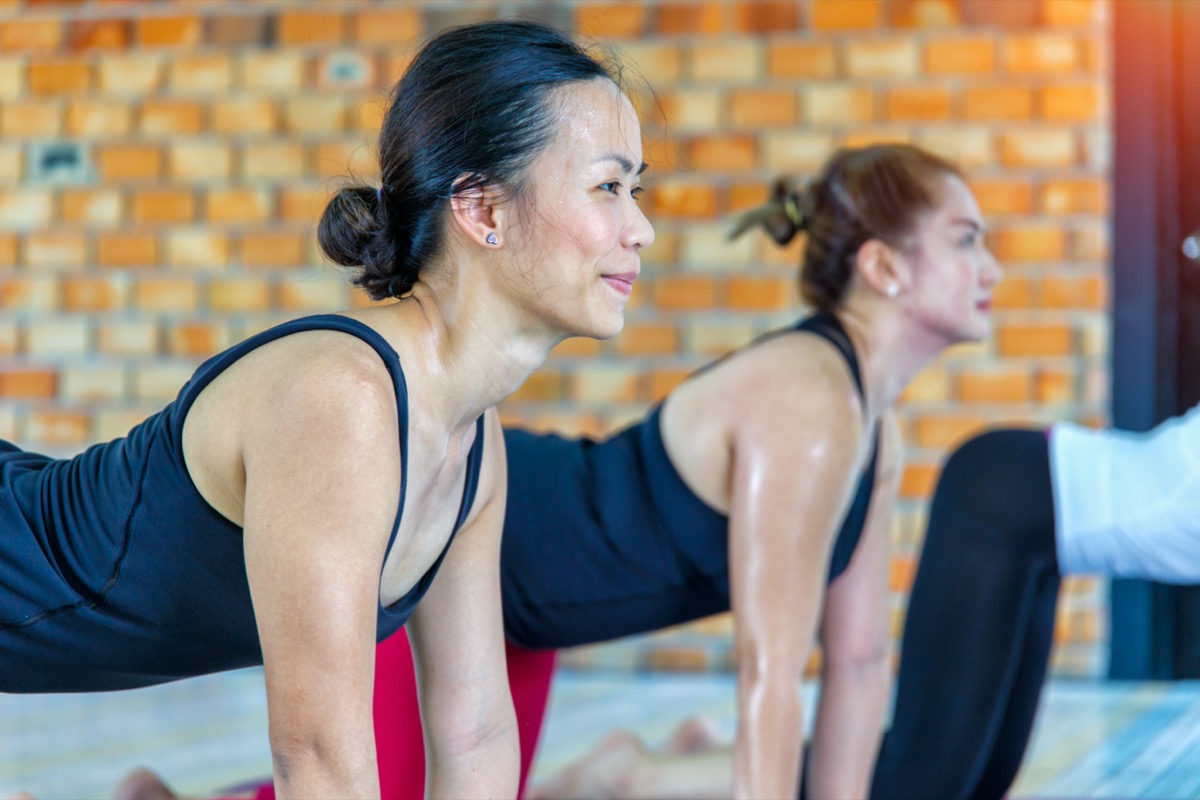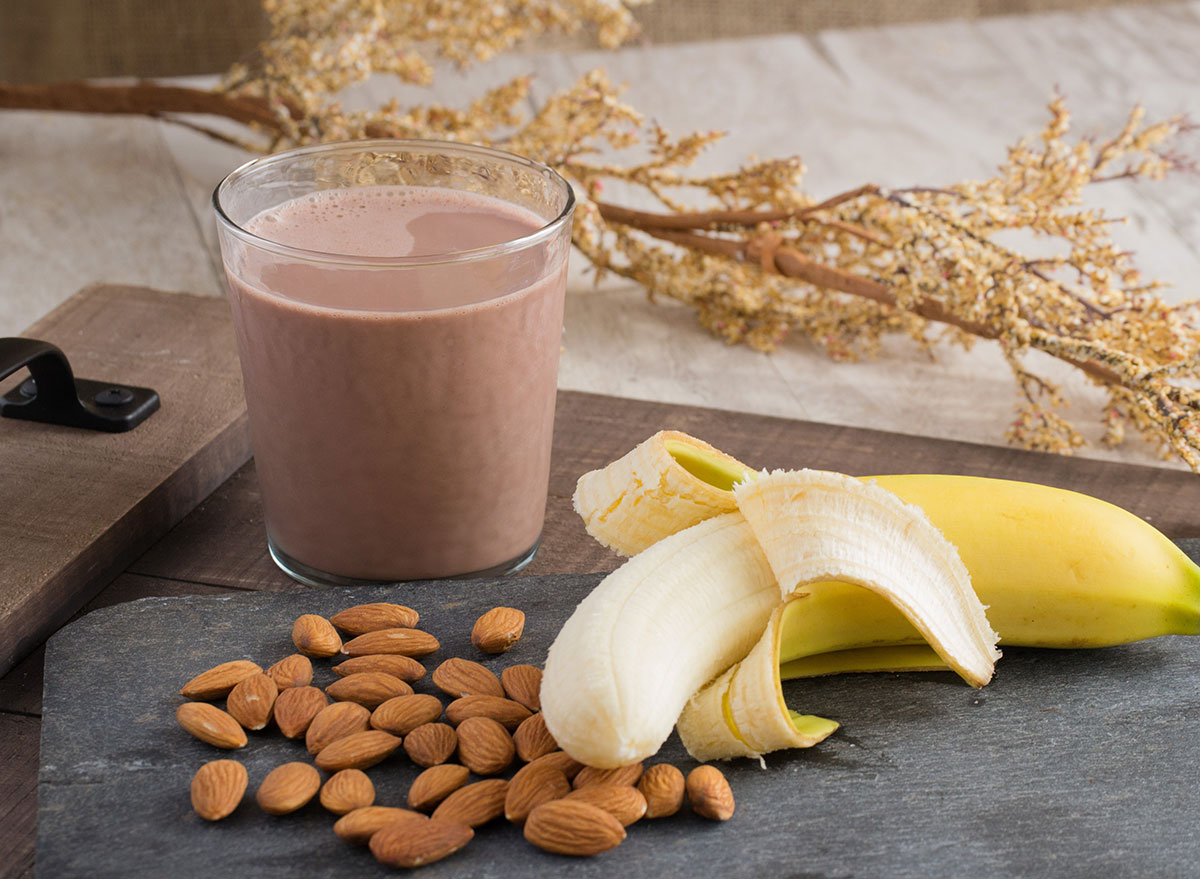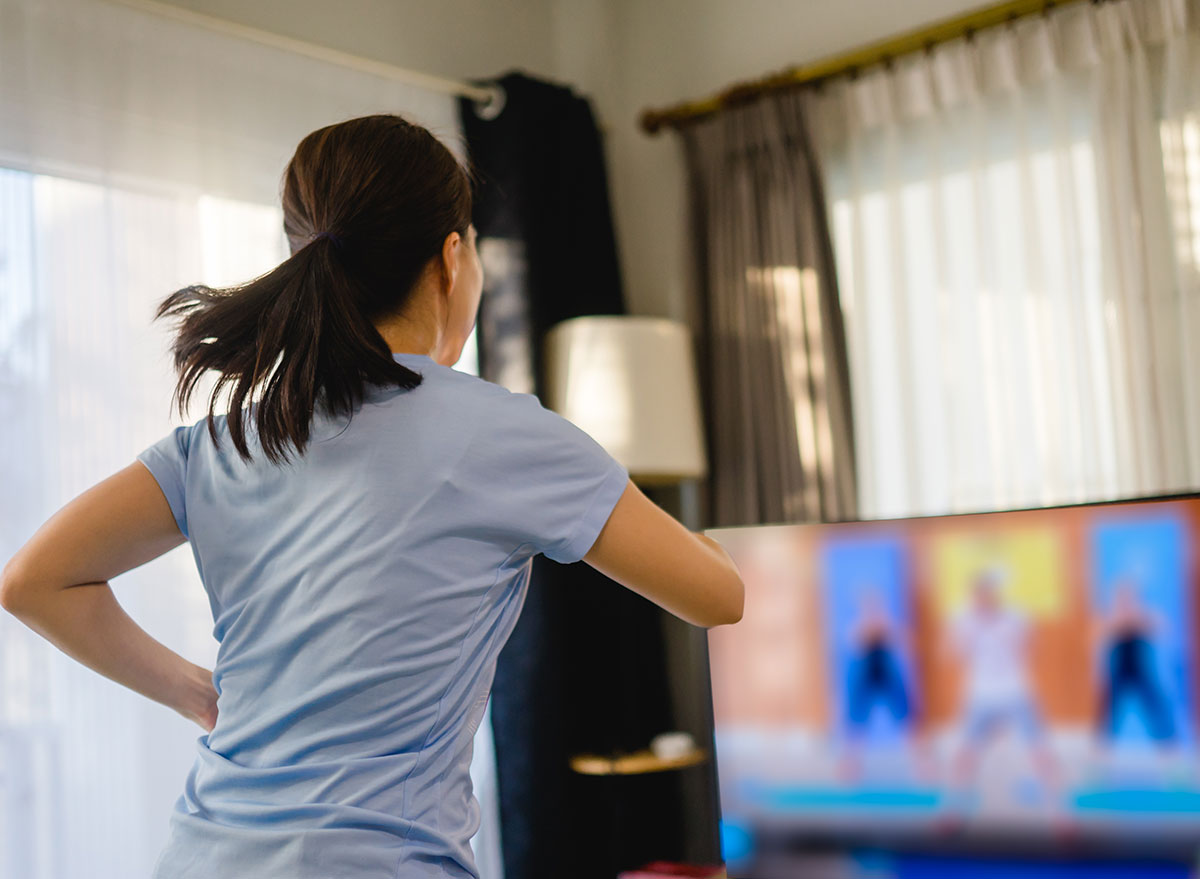8 Exercise Mistakes That Are Making You Gain Weight

Find yourself sweating buckets in spin class and yet the weight on the scale still hasn't budged? Well, you could be making some common exercise mistakes that are straight-up sabotaging your weight loss efforts.
The first correction to make: Change your mindset about exercise, says nutritionist Ilana Muhlstein, M.S., R.D.N., author of You Can Drop It! How I Dropped 100 Pounds Enjoying Carbs, Cocktails & Chocolate—and You Can Too!, which is now available in audiobook. No matter how long you ride that stationary bike, exercise alone simply will not work.
"People think they can eat more if they exercise, and that's one negative mindset you have to get rid of," she says. "When you put you put exercise in proper context—as a supplement to good nutrition, not a substitute for good nutrition—then you'll have much more success."
How many of these common exercise mistakes are you making? Scroll down to get the full breakdown so you can correct them once and for all with Muhlstein's help.
You believe exercise is mandatory.

Our abs-loving, Cross-Fit-grinding, booty-flaunting Instagram culture has framed exercise as one of the mandatory assignments in the weight-loss curriculum. But you don't have to exercise to lose weight. Good nutrition is your required course; exercise is an elective. Think of it as extra credit, a way to give yourself a jolt but not as a substitute for your baseline assignments.
"Use exercise for what it is—an amazing opportunity to sweat out stress, clear your mind, improve your shape, feel more confident, boost your health, and ultimately, serve as an igniter of motivation that will help keep your nutrition on track," says Muhlstein. "I have always found exercise has helped me drink more water and feel more capable and energetic. However, I never saw it tick the needle on the scale unless I was making the right choices with my fork. I have seen dozens of people lose tons of weight without exercise, but there's something about the sense of physical accomplishment and empowerment following a workout that propels a greater sense of self-care throughout the day. When I came to this realization, it actually made me enjoy exercise more."
You use exercise to "burn off " dessert.

Most people don't realize how much physical effort it takes to burn off a very few calories, so thinking, "I can have this ice cream cone because I'll just exercise longer tomorrow," is misguided. Consider this for perspective: Burning off the 300+ calories from a glazed chocolate donut would require nearly an hour of walking, 30 minutes of biking, or about 17 minutes of swimming.
Moral of the story: Don't try to use exercise to cancel out the treats you eat.
Instead, Muhlstein recommends this experiment to help you recognize the power of exercise as an adjunct to weight loss, rather than a "fix" for overeating. Take three consecutive days off from your workout plan and replace it with making your meals mostly vegetables, drinking plenty of water, getting more sleep, and doing some light walking or stretching. You may not notice a change in your weight at first, but you'll certainly feel better, energetic, healthier, and more empowered, she says.
If you're looking for healthy meal inspiration to keep on track, don't forget to sign up for our newsletter to get daily recipes and food news in your inbox!
You believe exercise is an instant fat melter.

Popular magazines and books claim that you can melt fat like an ice cube on hot pavement, but don't believe it. Exercise is not a time machine. You can't step into a spin class for a week or two and expect to see dramatic results.
"This can be deflating for lots of people—especially my husband, who expects to look like Thor after 30 minutes of weightlifting," laughs Muhlstein. "Keep your expectations in check; that's when you can really benefit from all the good things that happen when you exercise."
You think you just have to tough it out.

This comes from the muscle-headed notion "no pain, no gain."
"I had to lose 100 pounds," says Muhlstein. "You know how good it feels to be flapping around, bouncing, chafing, and hurting when you're trying to move with any kind of rigor when you're that overweight? It feels like a cheese grater on your thighs, it feels like you're carrying a fridge on your back. It hurts. And no amount of 'toughness' can change the fact that your thigh skin feels like rugburn."
Trying to tough it out can be hard emotionally, making you feel like you aren't good enough or strong enough if you want to quit to avoid the discomfort. Your best chance for success is taking slower, easier steps that move you forward without leaving you in pain.
"Start with something as basic as walking around the block or doing push-ups against the bathroom wall," says Muhlstein. "Exercise is meant to be uplifting, not painful." If exercise becomes something you dread, you will quickly stop exercising. Realize that just by moving more every day, you are doing wonders for your health, says Muhlstein.
You eat the wrong foods after exercising.

Some studies suggest that exercise is an appetite suppressant. Others show that some people become ravenous after a workout, craving greasy, fatty meals, and high-carb foods. See how exercise affects you and if it makes you hungry, as it likely will, the key is to have a plan for what to eat.
"Simply commit to a goal of not treating your body like a trash can," says Muhlstein. Think 'water first, veggies most,' she says repeating part of the mantra in her 2B Mindset program. Plan to have some grab-and-go veggies ready like baby carrots, broccoli florets, cucumbers, and even some natural peanut butter or cottage cheese and celery sticks for after your workout. You can even cook an egg or a high-protein burger to resupply your body with protein, which is essential for muscle repair and growth.
You're lifting weights just because you think you should.

There's an exercise for everyone out there. So, if you feel intimidated by weight lifting, don't do it just because a model in a magazine is doing it. If dumbbell curls don't excite you, then try something that will be more fun for you. Yes, we're talking about dance!
"When the music is going and you're focused on the beat, it won't feel like a workout at all," says Muhlstein. "If dancing doesn't fire you up enough, box! Boxing channels your stress in such a fun and empowering way. If boxing doesn't ignite your interest, embrace the natural and super-beneficial movements of yoga and barre. And if all else fails, just get up and take a long walk. Our bodies were built to move!"
You think you can never miss a workout.

How can consistent exercise keep you from losing weight? Think stress fracture. Think plain old run-of-the-mill stress. Over-exercising or stressing out about missing a workout can flood your body with the stress hormone cortisol, which can trigger overeating. High levels of cortisol raise insulin levels, which then lower blood sugar, making you crave high-carbohydrate and fatty comfort foods.
"You have unrealistic expectations if you think need to work out to have a productive weight loss day," says Muhlstein. "Don't scold yourself if you have to miss a workout because of injury, because your schedule is jam-packed, or because you're dealing with some major family stress. We need recovery days." When a client feels bad about not exercising during times of stress, she tells them, "OK, I get it, let's focus on the food and what we can control. Give yourself a break and realize that even if you can exercise, maybe you shouldn't—at least for now."
You're only exercising for your physical health.

That's the old mindset, says Muhlstein. The new mindset: I work out for my mental health.
Yes, there are many physical benefits of exercise—lowering blood pressure and blood sugar, strengthening bones and preventing arthritis, to name a few. But the mental health benefits of relieving anxiety, stress, insecurity, and lethargy are also important. After a workout, you are confident, secure, focused, centered, energetic, grateful, motivated and so much more, Muhlstein explains.
"When you exercise you are kinder and more positive to those around you. It's seriously the greatest gift we can give to ourselves and those we love," she says.








